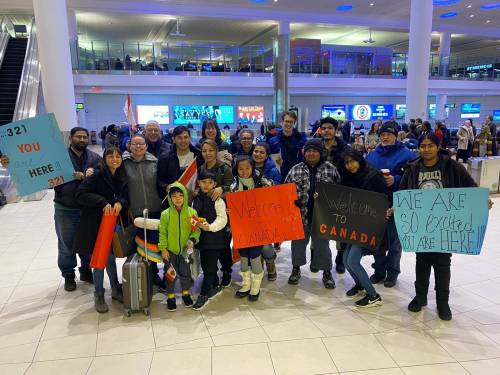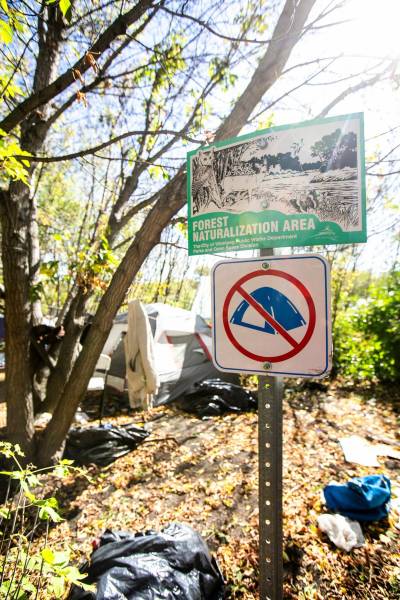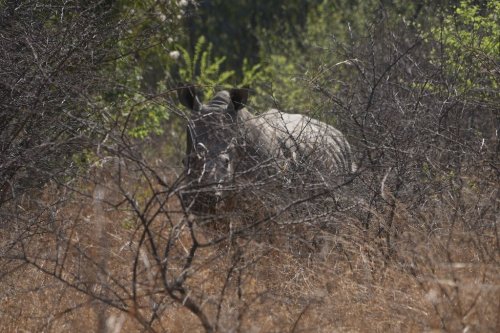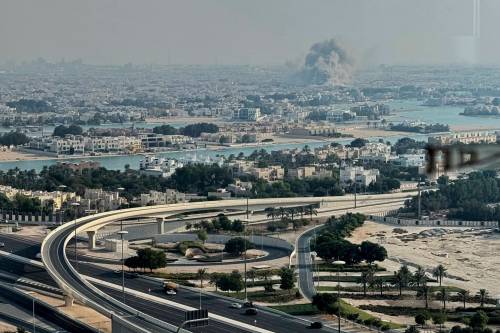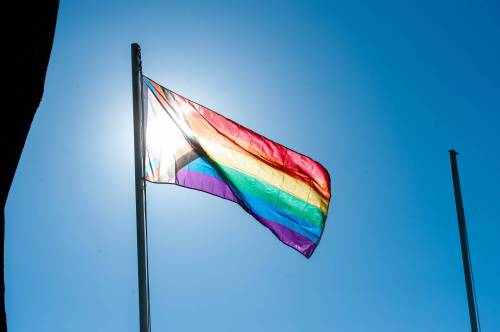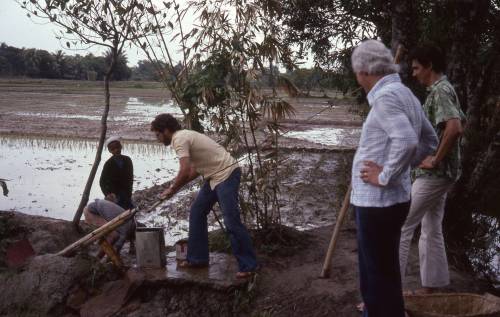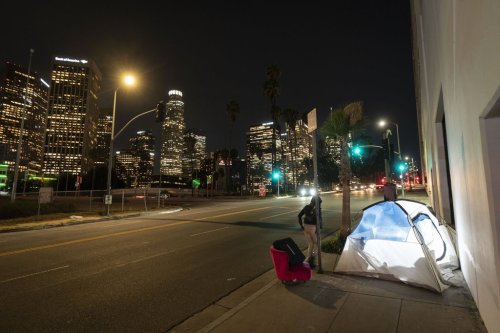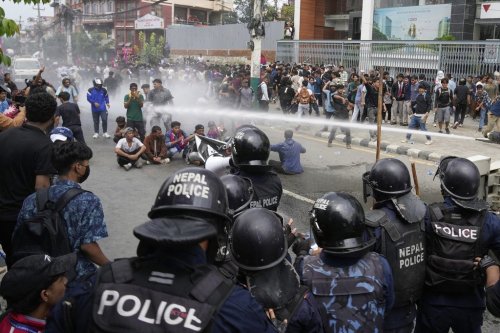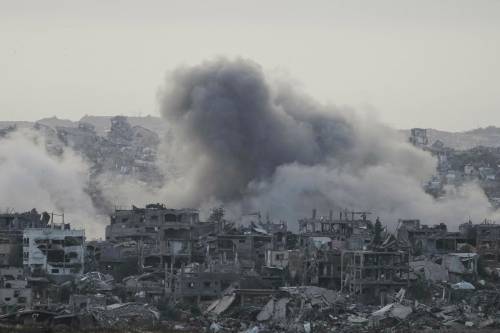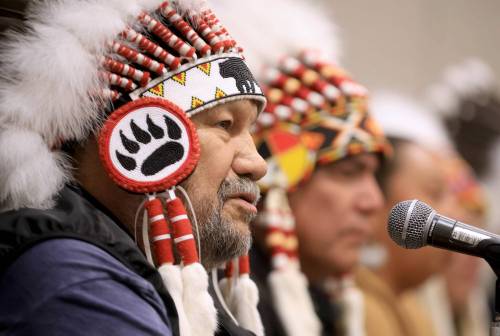Social Studies: Global Issues
‘It’s our mission’: Inner-city church driven to help refugees
5 minute read Preview Monday, Sep. 29, 2025Deepening and complex homelessness crisis pushing city neighbourhoods to tipping point
27 minute read Preview Friday, Sep. 26, 2025The devilish details that make no sense
4 minute read Preview Friday, Sep. 26, 2025Wildfires and the new normal
5 minute read Tuesday, Sep. 23, 2025Wildfires like this aren’t normal. Stop trying to normalize them.
“Bring a pair of pants and a sweater to Clear Lake — it’s unseasonably cool because of the wildfires.” That was just one of those meteorological idiosyncrasies, attempting to reach back deep into long-forgotten geography lessons, that may seem obvious to those on the Prairies. But for the outsider, a visitor from Toronto, and indeed a relative newcomer to Canada, it was certainly a shock, and a stark reminder that I would be flying into a province still under a state of emergency, which had until recently been decimated by wildfires. It was also an introduction into what may be considered ‘normal’.
Visiting Manitoba this August was extraordinary — the people most certainly lived up to the “friendly” billing that adorns the licence plates, and the scenery of Riding Mountain National Park was worth the trip alone. However, there were a number of topics of conversation that made me question what I had come to know as accepted wisdom.
Talk about fishing restrictions, Indigenous rights, oil and gas permeated discussions, with healthy, good spirited debates. But for me, the most vexing issue was wildfires. More specifically, the extent of their aftermath, effects, and associated restrictions, have become normalized.
On World Rhino Day, South Africa marks progress but still loses a rhino daily to poachers
5 minute read Preview Monday, Sep. 29, 2025North Korea comes in from the cold
5 minute read Thursday, Sep. 18, 2025Earlier this month, North Korea’s Kim Jong-Un flanked China’s President Xi Jinping on the red carpet at an epic military parade in Beijing. The supreme leader was feted as a guest of honour along with Vladimir Putin. Behind them in the pecking order were nearly two dozen heads of state — the leaders of regional powers Indonesia and Vietnam among them.
It was Kim’s first time at a major diplomatic event in his 14 years as leader. And it won’t be the last. Indeed, North Korea has asserted itself as a useful cog in the autocratic faction within the new multipolar global order.
Beijing for a long time was the sole ally propping up the Kim dynasty’s totalitarian dictatorship — if only because its collapse would burden China with millions of unwanted refugees. China thus provides its heavily sanctioned neighbour with vital energy and food supplies. Plus, China’s lone mutual defence treaty is with North Korea, signed in 1961.
The relationship has nonetheless been strained over the decades. Mainly, by Pyongyang’s habit of doling out rash threats of nuclear annihilation against the United States and its allies. This irritates Chinese leaders by bringing unwanted attention to what Beijing perceives as its geographic sphere of influence.
City council threatens rights without delivering safety
5 minute read Wednesday, Sep. 17, 2025As the City of Winnipeg appears poised to implement new rules that target people who live in encampments, questions should be raised about who — if anyone — will be safer as a result.
Winnipeg city council’s community services committee recently unanimously approved a motion, introduced and amended by Coun. Cindy Gilroy and seconded by Coun. Sherri Rollins, to prohibit encampments in and around a wide range of spaces, including playgrounds, pools, schools, daycares, transit stops, bridges and rail lines. It also directs the city to expand enforcement across all other city spaces during daylight hours, which could mean issuing bylaw tickets. The motion will go to council’s executive policy committee before a final vote by council.
While some, including Mayor Scott Gillingham, have described these new rules as a “balanced approach” to deal with encampments, we have seen this type of approach before and it does not work.
The motion is framed around safety, especially for children and families. That concern should not be dismissed — no one disputes that unsafe materials have been found in public spaces, but tying those concerns directly to encampments offers a misleading choice. It suggests that the safety of families must come at the expense of people experiencing homelessness. And with Winnipeg’s child poverty rate the highest in the nation, many of the children and families this ban claims to protect are also among those it targets.
Putting people before politics
4 minute read Tuesday, Sep. 16, 2025Dividing outreach providers won’t solve homelessness. Collaboration and a managed encampment-to-housing site will. As winter closes in, Winnipeg faces a mounting crisis. More people than ever are living unsheltered, exposed to harsh weather, unsafe conditions and the devastating risks of addiction.
Riverbank encampments and makeshift shelters in public spaces have become dangerous not only for residents but also for outreach workers and emergency responders who must navigate snow- and ice-covered terrain just to provide help. Encampment residents, meanwhile, live without even the basic dignity of an outhouse.
The overdose death rate in Winnipeg is among the highest in the country, and too many of those deaths happen in encampments. This cannot continue.
For too long, the conversation has been stalled by a false narrative: that homelessness is solely the result of a lack of subsidized housing. While the housing shortage is real, it is only part of the story. The deeper truth is that Winnipeg is in the grip of a drug-use epidemic that has become the single largest pipeline into homelessness.
The American Right has its martyr — what’s next?
6 minute read Preview Tuesday, Sep. 16, 2025Qatar and Poland — one is the bigger story
5 minute read Preview Monday, Sep. 15, 2025‘Safety is our ultimate goal’: Steinbach cancels annual Pride event
6 minute read Preview Sunday, Sep. 14, 2025Local engineer was a real game changer
5 minute read Preview Saturday, Sep. 13, 2025A Lebanese dancer defies extremist threats and social norms with his sold-out performances
6 minute read Preview Monday, Sep. 29, 2025Day of free services, entertainment offers heartwarming helping hand to city’s homeless
4 minute read Preview Friday, Sep. 12, 2025Nepal internet crackdown part of global trend toward suppressing online freedom
5 minute read Preview Thursday, Sep. 25, 2025Most US adults think individual choices keep people in poverty, a new AP-NORC/Harris poll finds
6 minute read Preview Monday, Sep. 29, 2025Protests against Nepal’s social-media ban grow more violent as demonstrators set buildings on fire
6 minute read Preview Thursday, Sep. 25, 2025Clean air as privilege
4 minute read Saturday, Sep. 6, 2025For elders with dementia, youth with anxiety, or evacuees coping with displacement, smoke is not just a public health irritant. It’s an accelerant for mental health issues.
You can’t put an N95 on your brain. You can’t tell your nervous system to calm down when the air outside looks like dusk at noon.
For older adults, people with asthma, families on fixed incomes, or those living in crowded apartments or trailers, wildfire season in Manitoba is more than just a nuisance. It’s a trigger. Of breathlessness. Of panic. Of helplessness.
And every year, the advice is the same:
Gaza as a twisted real estate opportunity
5 minute read Preview Saturday, Sep. 6, 2025Hydro rejects generator option for evacuated community
4 minute read Preview Friday, Sep. 5, 2025Carney calls for ‘maximum pressure’ on Russia as Putin issues threat to allies
3 minute read Preview Tuesday, Sep. 23, 2025The Canadian government, mining and human rights
5 minute read Saturday, Aug. 30, 2025Environmentally speaking, foreign mining companies are often more concerned about extracting profits than they are about protecting the local ecological space. There have been innumerable cases of these extractive businesses releasing dangerous chemical pollutants into the air, causing physical damage to nearby homes through soil and bedrock disturbances and dumping mining effluent that poisons local drinking water systems.


